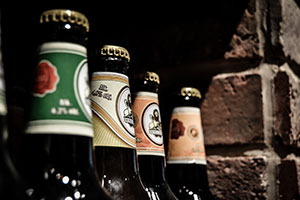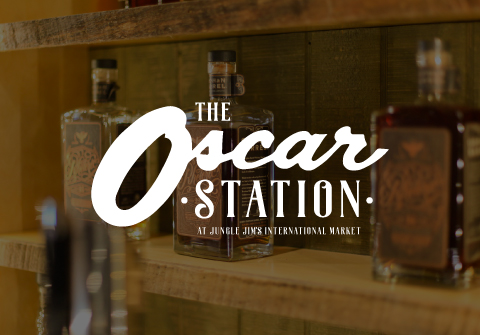
Beer Department: Cellaring Beer
Back to feed- Posted: 2/1/2018
- Categories: Beer

Everyone knows that certain wines can benefit from age, with some wines taking decades to reach their peak. What is less known, and even less understood, is that beer can benefit enormously from proper cellaring. While many people want to begin cellaring beer, the prospect of starting and maintaining a cellar can be overwhelming. So let’s break it down step by step and get you on the road to enjoying cellared beer!
WARNING: Cellaring beer is a fun and interesting hobby that rewards patience and experimentation. However, you inevitably end up spending plenty of hard earned money filling your cellar with beers you don’t intend to consume for years. You have been warned.
 Now that we’ve gotten the requisite warning out of the way, the first question we have to answer is – why cellar beer? Well, while all beers can be consumed fresh and enjoyed, some can take on new and interesting flavors as time progresses, provided they are stored properly. Sometimes, a beer that was overly aggressive or discordant in its youth can have its rough edges smoothed out by time.
Now that we’ve gotten the requisite warning out of the way, the first question we have to answer is – why cellar beer? Well, while all beers can be consumed fresh and enjoyed, some can take on new and interesting flavors as time progresses, provided they are stored properly. Sometimes, a beer that was overly aggressive or discordant in its youth can have its rough edges smoothed out by time.
Now to figure out what beers to cellar. Typically, you don’t want to age light and delicate beers. Pilsners, witbiers, hefeweizens, etc. are best consumed fresh. The one exception to the “light & delicate” rule is sour ale, specifically barrel aged sour ales like Flanders reds, lambics, and gueuze. These beers will age beautifully for years. You would also be advised to avoid aging hoppy beers. Hops are a funny thing because they actually have preservative qualities for the rest of the beer yet are themselves the most volatile component of beer. Thus, their bitterness, flavor and aroma will fade quickly so any beer that showcases hops (IPAs, Double IPAs, etc.) will be a shadow of what the brewer intended if not consumed fresh. The best options for cellaring include all big, malt forward styles of beer. Imperial stouts, barleywines, quadrupels, and scotch ales all age spectacularly and will reward decades of patient cellaring. Styles that include doppelbock, tripels, and dubbels can usually be aged for a few years but may fall off after too much time. The greatest joy in cellaring comes in the exploration and experimentation. Sure, you’ll occasionally drink a beer that didn’t develop the way you wanted. You will, however, once in a while, crack open something from deep in your cellar that redefines how you think about beer. These are the sort of transcendent moments that any good beer geek is searching for.
Any hope of reaching this kind of sudsy nirvana is contingent upon proper cellaring. Beer will age best in an environment that is consistently dark and consistently cool. A temperature between 55 and 60  degrees fahrenheit is ideal, although any cool closet or basement will do in a pinch. If you really want to geek out on a perfect cellar, you can buy a temperature controller for $50 or so and attach it to an existing refrigerator. This temperature controller gives you a very fine level of control over the refrigerator’s thermostat, allowing you to set the fridge to a constant 55 degrees. Do that, close the door to the fridge and presto! You have created the ideal cellar.
degrees fahrenheit is ideal, although any cool closet or basement will do in a pinch. If you really want to geek out on a perfect cellar, you can buy a temperature controller for $50 or so and attach it to an existing refrigerator. This temperature controller gives you a very fine level of control over the refrigerator’s thermostat, allowing you to set the fridge to a constant 55 degrees. Do that, close the door to the fridge and presto! You have created the ideal cellar.
Once your setup is complete, in whatever form you see fit, all that’s left to do is start filling your cellar! Buy two of each beer, one to drink fresh so you have a baseline for comparison and one to put in the cellar. Store your bottles or cans upright. Be on the lookout for bottles with corks as these will minimize oxidation better than crown caps. Also, a bottle conditioned beer will provide an extra layer of development inside the bottle and thus make excellent candidates for your cellar. Keep a log of tasting notes on the fresh bottles for comparison to aged examples plus a log to document the bottled-on date so you know how old the beer is when you open it. The eternal question here is when you should open each beer. That’s up to you! Remember, beer is supposed to be fun! Have fun and enjoy the ride.
Cheers!
-Eric, Eastgate


